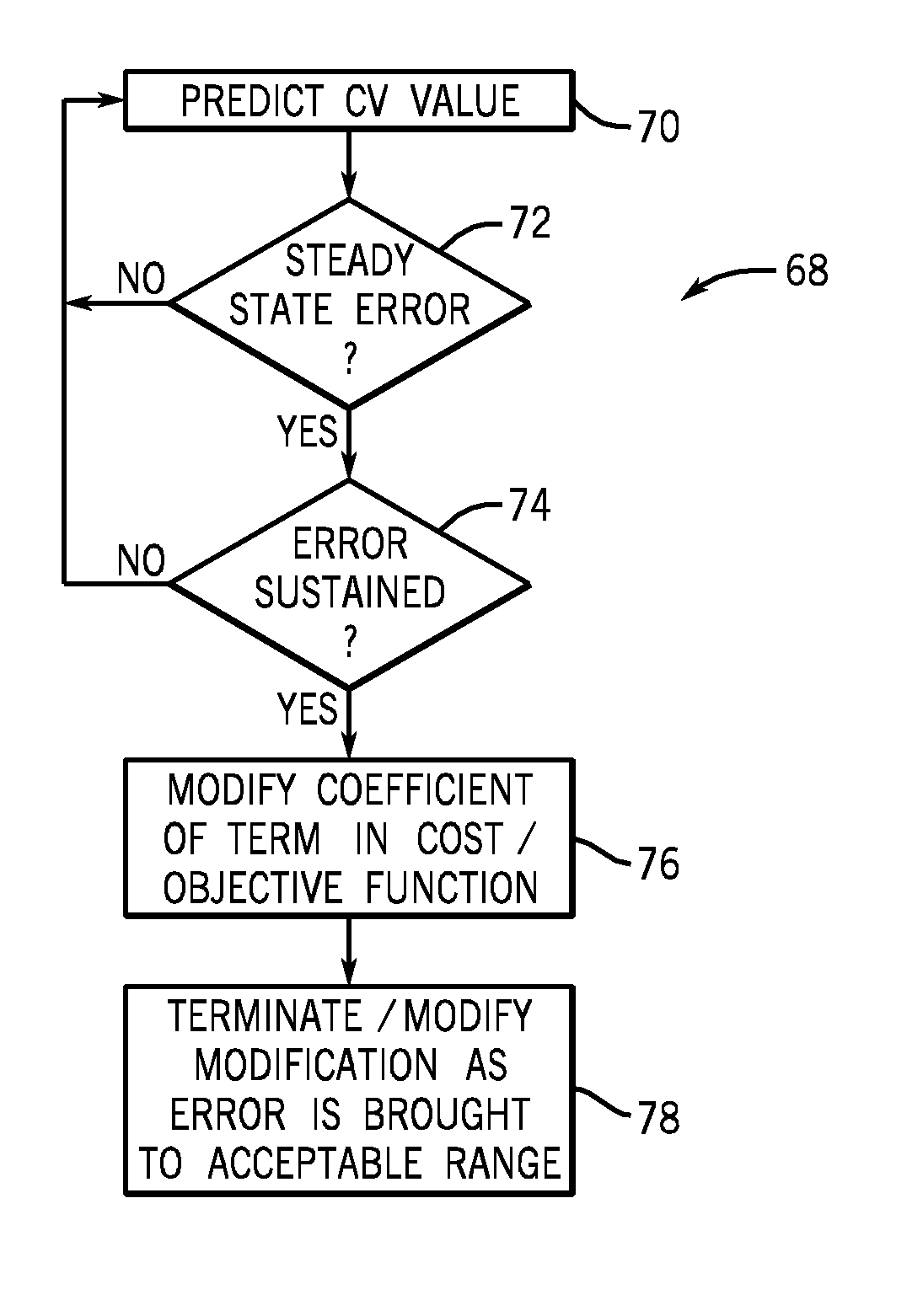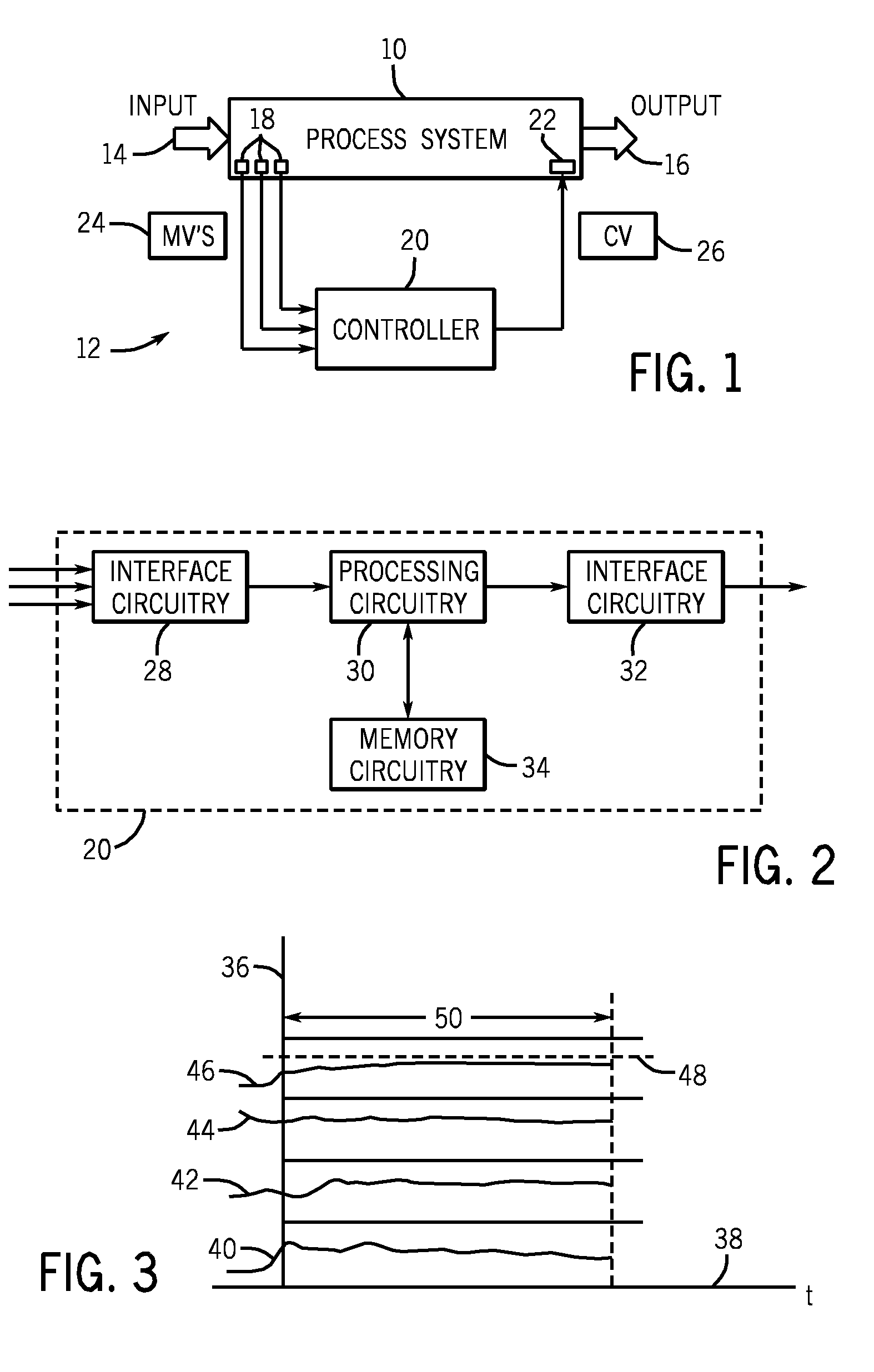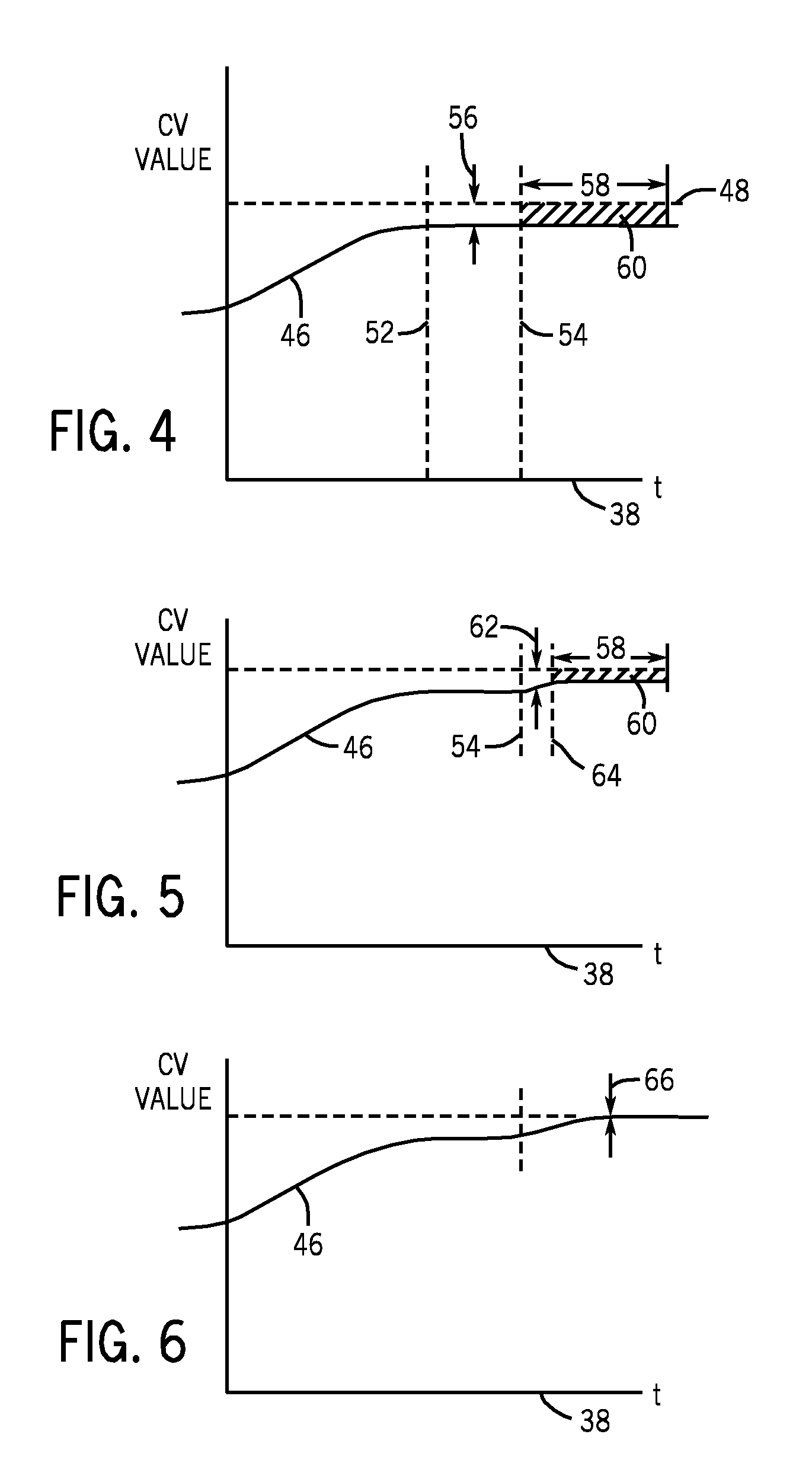Model Predictive Control System and Method for Reduction of Steady State Error
a control system and model technology, applied in adaptive control, process and machine control, instruments, etc., can solve the problem of increasing the cost of one or more variables, and achieve the effect of reducing the steady state error
- Summary
- Abstract
- Description
- Claims
- Application Information
AI Technical Summary
Benefits of technology
Problems solved by technology
Method used
Image
Examples
Embodiment Construction
[0014]Turning now to the drawings, and referring first to FIG. 1, a process system 10 is illustrated that is at least partially regulated by a control system 12. As will be appreciated by those skilled in the art, the process system 10 may be any conceivable type of process, such as a manufacturing process, a steady state or batch process, a chemical process, a material handling process, an engine or other energy utilizing process, an energy production process, and so forth. In general, the process system 10 will receive one or more inputs 14 and produce one or more outputs 16. In complex processes found in the industry, many such inputs may be utilized, including feed stocks, electrical energy, fuels, parts, assemblies and sub-assemblies, and so forth. Outputs may include finished products, semi-finished products, assemblies, manufacturing products, by products, and so forth. Based upon the system dynamics, the physics of the system and similar factors, the control system 12 will r...
PUM
 Login to View More
Login to View More Abstract
Description
Claims
Application Information
 Login to View More
Login to View More - R&D
- Intellectual Property
- Life Sciences
- Materials
- Tech Scout
- Unparalleled Data Quality
- Higher Quality Content
- 60% Fewer Hallucinations
Browse by: Latest US Patents, China's latest patents, Technical Efficacy Thesaurus, Application Domain, Technology Topic, Popular Technical Reports.
© 2025 PatSnap. All rights reserved.Legal|Privacy policy|Modern Slavery Act Transparency Statement|Sitemap|About US| Contact US: help@patsnap.com



